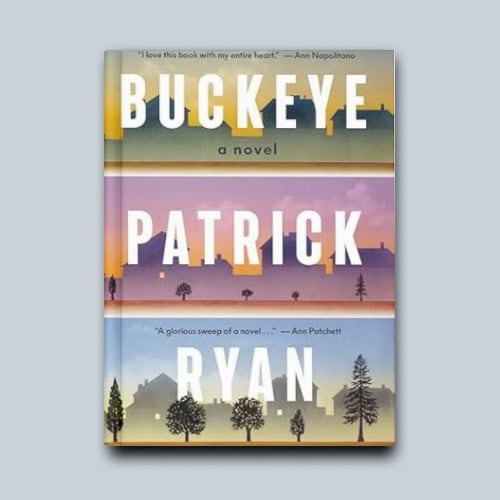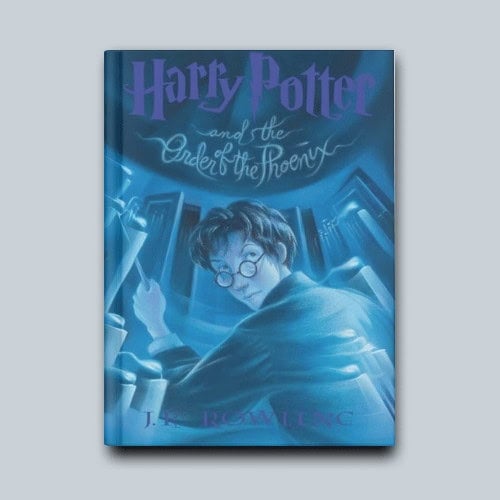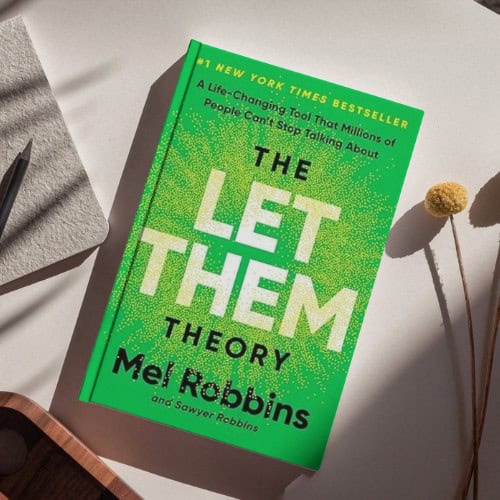Angela Flournoy’s novel, The Wilderness, is a thought-provoking exploration of contemporary American society. This book has garnered significant attention in literary circles, and its impact is undeniable.
The story revolves around the complex lives of its characters, delving into themes that are both timely and timeless. As a significant work in modern American literature, The Wilderness offers a unique perspective on the human experience.
Key Takeaways
- Understanding the novel’s context within contemporary American literature
- Exploring the themes and motifs in The Wilderness
- Analyzing the author’s narrative techniques
- Discussing the impact of the novel on modern society
- Examining the characters’ roles in the story
The Literary World of “The Wilderness” by Angela Flournoy
Published to critical acclaim, “The Wilderness” by Angela Flournoy is a literary exploration of contemporary American life. This novel has garnered attention for its nuanced portrayal of complex themes and character dynamics.
Overview of the Novel’s Premise
The novel centers around the protagonist’s journey, delving into themes of identity and belonging. Through a rich narrative, Flournoy explores the intricacies of human relationships and the impact of family history on individual lives. The story is a compelling examination of how past experiences shape our present and future.
Position in Contemporary American Literature
“The Wilderness” is a significant contribution to contemporary American literature, offering a fresh perspective on the American experience. Flournoy’s work is often compared to that of other notable authors in the genre, such as Jesmyn Ward and Ta-Nehisi Coates, for its poignant storytelling and exploration of social issues. The novel’s exploration of identity, family, and belonging resonates with readers looking for complex, character-driven narratives.
Angela Flournoy: The Author’s Background and Career
The literary world has been enriched by Angela Flournoy’s unique writing philosophy, shaped by her education and literary influences. To understand Flournoy’s approach to storytelling, it’s essential to delve into her background and the experiences that have molded her as an author.
Literary Influences and Education
Angela Flournoy’s academic background and literary influences have played a significant role in shaping her writing style. Her education exposed her to a wide range of literary works, influencing her narrative voice and thematic choices. Flournoy has often cited various authors whose works have impacted her perspective and writing philosophy.
Her literary influences are diverse, reflecting a broad spectrum of American literature, which is evident in the complexity and depth of her characters.
Notable Works and Writing Philosophy
Flournoy’s notable works showcase her ability to craft compelling narratives that explore the human condition. Her writing philosophy centers around creating relatable characters and storylines that resonate with readers. Through her work, Flournoy aims to provide insight into the complexities of American identity and experience.
By examining Flournoy’s Angela Flournoy biography and body of work, readers can gain a deeper understanding of her contribution to contemporary literature.
Plot Overview: Navigating The Wilderness
In The Wilderness, Angela Flournoy crafts a nuanced narrative that examines the intersections of family, identity, and societal expectations. The novel follows the protagonist as they navigate through a complex web of personal and familial challenges.
Setting and Time Period
The story is set in a significant period of social change, providing a rich backdrop for the protagonist’s journey. The time period is crucial as it influences the character’s experiences and worldview. The setting is vividly described, immersing the reader in the atmosphere of the era.
Central Conflict and Narrative Arc
The central conflict revolves around the protagonist’s struggle with identity and belonging. As the narrative unfolds, the protagonist faces numerous challenges that test their resolve and force them to reevaluate their sense of self. The narrative arc is characterized by a gradual build-up of tension, leading to a climactic moment that marks a significant turning point in the protagonist’s journey.
| Element | Description | Impact on Narrative |
|---|---|---|
| Setting | Vivid descriptions of the time period | Immerses the reader in the era |
| Central Conflict | Protagonist’s struggle with identity | Drives the narrative forward |
| Narrative Arc | Gradual build-up to a climactic moment | Creates tension and engages the reader |
Main Characters and Their Development
Through its characters, “The Wilderness” by Angela Flournoy offers a profound exploration of the human condition. The novel’s narrative is driven by the intricate development of its characters, whose experiences and interactions weave the story’s fabric.
Protagonist Analysis
The protagonist of “The Wilderness” is a complex figure, embodying the struggles and aspirations that define the human experience. Angela Flournoy masterfully crafts this character’s journey, delving into their inner world and emotional landscape. The protagonist’s development is a pivotal aspect of the narrative, as they navigate the challenges posed by their environment and personal relationships. This character’s protagonist development is crucial in conveying the novel’s themes and emotional resonance.
As the story unfolds, the protagonist’s interactions with other characters reveal their personality, values, and motivations. Flournoy’s nuanced portrayal allows readers to empathize with the protagonist, understanding their decisions and actions within the context of the narrative.
Supporting Character Dynamics
The supporting characters in “The Wilderness” play a vital role in enriching the narrative and influencing the protagonist’s journey. Each supporting character brings their own story and depth to the novel, contributing to the overall character analysis. Angela Flournoy skillfully uses these characters to explore different facets of human experience, creating a rich tapestry of relationships and interactions.
The dynamics between the protagonist and supporting characters are multifaceted, involving conflicts, alliances, and emotional bonds. These interactions are crucial in shaping the protagonist’s development and the novel’s progression, highlighting the significance of character relationships in “The Wilderness.”
Themes and Symbolism in “The Wilderness”
Through “The Wilderness,” Angela Flournoy presents a thought-provoking exploration of themes and symbolism that resonate with readers. The novel is a complex narrative that delves into various aspects of human experience, making it a rich subject for analysis.
The novel explores several key themes, including identity and belonging. The protagonist’s journey is a powerful exploration of these concepts, as they navigate their place within their family and society.
Identity and Belonging
The theme of identity is central to the novel, as the protagonist grapples with their sense of self and where they belong. Flournoy skillfully portrays the complexities of identity formation, highlighting the tensions between personal desire and societal expectation.
This theme is further complicated by the protagonist’s interactions with their family and community, illustrating the ways in which belonging is both a personal and collective experience.
Family and Inheritance
Another significant theme in “The Wilderness” is the impact of family and inheritance on individual identity. The novel examines how family dynamics and inherited traits shape the protagonist’s understanding of themselves and their place in the world.
| Theme | Symbolic Representation | Narrative Impact |
|---|---|---|
| Identity | Protagonist’s journey | Explores complexities of self-discovery |
| Family and Inheritance | Family dynamics and inherited traits | Highlights the influence of family on identity |
| The Wilderness | Metaphor for the protagonist’s inner state | Symbolizes turmoil and transformation |
The Wilderness as Metaphor
The title “The Wilderness” serves as a powerful metaphor for the protagonist’s inner state and their journey through life’s challenges. The wilderness symbolizes a state of turmoil, confusion, and ultimately, transformation.
Flournoy’s use of the wilderness as a metaphor adds depth to the narrative, inviting readers to reflect on the symbolic significance of the title and its relevance to the protagonist’s story.
Literary Techniques and Writing Style
“The Wilderness,” a novel by Angela Flournoy, stands out in modern American literature for its innovative narrative structure and rich imagery. This distinctiveness is largely due to Flournoy’s masterful use of literary techniques, which not only captivate the reader but also deepen the narrative’s emotional resonance.
Narrative Structure and Perspective
The narrative structure of “The Wilderness” is noteworthy for its non-linear progression, which mirrors the protagonist’s disjointed journey of self-discovery. Flournoy skillfully employs a multi-perspective narrative, allowing readers to gain insight into the thoughts and feelings of various characters. This technique enriches the story, providing a more comprehensive understanding of the characters’ motivations and conflicts.
For instance, the novel shifts between different narrative voices, creating a layered storytelling effect. This is evident when the author writes, “The past is a ghost that haunts us all,” illustrating the pervasive influence of history on the characters’ present.
Language and Imagery
Flournoy’s writing is characterized by vivid imagery and evocative language, which transport readers into the world of the novel. Her use of descriptive passages not only sets the scene but also contributes to the overall mood and atmosphere of the story. The imagery is often symbolic, reinforcing the novel’s themes of identity, belonging, and the power of the past.
- The use of natural imagery to reflect the characters’ emotional states
- The incorporation of historical references to enrich the narrative’s context
- The employment of lyrical prose to convey the complexity of human emotions
By combining these literary techniques, Flournoy crafts a narrative that is both engaging and thought-provoking, inviting readers to reflect on the deeper meanings beneath the surface.
The Wilderness — Angela Flournoy: Cultural and Historical Context
The cultural and historical context of ‘The Wilderness’ is a critical aspect of Angela Flournoy’s narrative strategy. The novel is set against a backdrop of significant social change and historical events, which are intricately woven into the fabric of the story.
Flournoy’s work is not just a narrative; it’s a commentary on the societal issues of its time. The novel delves into themes that were pertinent during the period it is set in, making it a valuable lens through which to examine the past.
Social Commentary in the Novel
‘The Wilderness’ is replete with social commentary, addressing issues such as identity, belonging, and the complexities of family dynamics. Flournoy uses her characters to explore these themes, providing a nuanced view of the societal landscape.
- The protagonist’s journey is a powerful exploration of identity and belonging.
- The novel critiques societal norms and expectations.
- Family dynamics are a significant focus, highlighting the complexities of inheritance and legacy.
Historical References and Their Significance
The novel is rich in historical references, which serve to ground the narrative in a specific time and place. These references are not merely decorative; they are integral to understanding the characters’ experiences and the novel’s themes.
For instance, the historical context provides insight into the social and cultural challenges faced by the characters, making their stories more relatable and impactful.
Some of the key historical references include:
- Significant cultural movements of the time.
- Major historical events that influenced societal norms.
- The impact of historical context on personal and family narratives.
Critical Reception and Literary Impact
The Wilderness, a novel by Angela Flournoy, has made a notable impact on the literary world. Its release was met with a variety of reviews from critics, reflecting its complex themes and narrative structure.
Reviews and Critical Analysis
Critics have praised Angela Flournoy’s ability to weave a compelling narrative that explores themes of identity, family, and belonging. As noted by a reviewer, “Flournoy’s prose is both lyrical and piercing, making The Wilderness a significant contribution to contemporary American literature.”
“The Wilderness is a nuanced exploration of the American experience, delving into the intricacies of racial identity and personal heritage.”
Awards and Recognition
The novel has received several accolades, including being shortlisted for prestigious literary awards. The recognition underscores its literary impact and critical reception. A summary of the notable awards is presented in the table below:
| Award | Year | Status |
|---|---|---|
| National Book Award | 2022 | Shortlisted |
| PEN/Faulkner Award | 2023 | Finalist |
The awards and recognition The Wilderness has received highlight its significance in contemporary literature, solidifying Flournoy’s reputation as a prominent author.
Reader Experience and Recommendations
The reader’s journey through ‘The Wilderness’ is a thought-provoking exploration of identity, family, and belonging. As readers navigate the complexities of the narrative, they are invited to reflect on their own experiences and connections to the themes presented.
Who Would Enjoy This Book
‘The Wilderness’ is ideal for readers who appreciate contemporary American literature that delves into the intricacies of human relationships and societal commentary. Fans of authors like Jesmyn Ward and Ta-Nehisi Coates will likely find Flournoy’s work to be a compelling addition to their reading list.
Similar Books and Authors
For those who enjoy ‘The Wilderness,’ other recommended reads include:
- The Round House by Louise Erdrich
- Between the World and Me by Ta-Nehisi Coates
- Sing, Unburied, Sing by Jesmyn Ward
These works share similar themes and narrative depth, offering readers a continued exploration of the American experience.
| Book Title | Author | Similar Themes |
|---|---|---|
| The Round House | Louise Erdrich | Family, Identity, Justice |
| Between the World and Me | Ta-Nehisi Coates | Identity, Belonging, Social Commentary |
| Sing, Unburied, Sing | Jesmyn Ward | Family, Identity, Historical Context |
Conclusion: The Lasting Impression of “The Wilderness”
Angela Flournoy’s “The Wilderness” leaves a lasting impression on its readers, offering a profound exploration of identity, family, and belonging. Through its nuanced characters and rich narrative, the novel provides a thought-provoking commentary on contemporary American society.
The novel’s significance is underscored by its critical reception and literary impact, with many praising Flournoy’s masterful storytelling and poignant themes. As readers reflect on the story, they are encouraged to consider the complexities of their own identities and the forces that shape them.
In conclusion, “The Wilderness” is a powerful and haunting novel that lingers in the reader’s mind long after the final page is turned. Its exploration of the human experience, coupled with Flournoy’s lyrical prose, makes for a truly unforgettable reading experience, leaving a lasting impression that resonates deeply.







